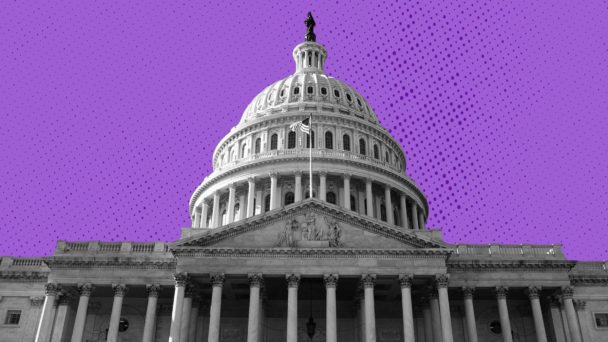Sometime between now and June, the Supreme Court will issue its decision in Loper Bright v. Raimondo, a case in which conservative activist lawyers are asking conservative activist Supreme Court justices to bring modern government to a sudden, grinding halt. In Loper Bright and a companion case, Relentless v. Department of Commerce, the justices have the chance to overrule Chevron v. NRDC, a 40-year-old Supreme Court case that limits judges’ power to second-guess regulations issued by the executive agencies that enforce federal law. Getting rid of Chevron is a longtime project of the conservative legal movement, because agency action is largely the way government functions in this country, and the conservative legal movement does not want government to function at all.
At oral argument, Solicitor General Elizabeth Prelogar warned that overruling Chevron would deliver a “shock to the legal system,” and already, the people who would bear the brunt of it are preparing for the consequences. As Suzanne Monyak reports in Bloomberg, trial court judges are girding themselves for an onslaught of litigation, as every megacorporation annoyed by rules preventing them from dumping hazardous waste in municipal storm drains would have a powerful incentive to try their luck in court. As two former federal judges told Monyak, the only question is whether the forthcoming spike in work will be best characterized as a “sky is falling” situation, a “flood,” or a mere “heaping helping.”
These will not be easy cases, either. Executive agencies are staffed with subject-matter experts, whose job is to transform well-intentioned but necessarily vague statutory language into actionable and enforceable standards. (For example, the Clean Air Act’s aspirational commitment to limiting pollutants in the air you breathe means little until the Environmental Protection Agency’s scientists decide how much sulfur dioxide is too much sulfur dioxide.) Absent Chevron, which creates a sort of presumption of correctness of agency decisions, judges will be trying to become fluent in agency records that get deep into the scientific weeds, often over tens of thousands of pages. A Loper Bright decision that retroactively overrules Chevron would be even more of a logistical nightmare, giving the aforementioned megacorporations a chance to replay decades of losses, but with new rules and new refs.
Incredibly, things might be even worse for agency personnel, whose technical determinations about things like car seat safety standards would suddenly be subject to ratification by some random judge still paying off law school debt. Chevron’s death would almost certainly deter agencies from promulgating rules with any teeth, perhaps unsatisfied with the results but unwilling to risk the loss of time and effort if a Federalist Society judge squints at data they don’t understand and then, for whatever godforsaken reason, draws a different conclusion than the one the experts drew. In the long run, the most significant casualty of Chevron’s death might not be the rules that courts actually invalidate, but the rules that skittish agencies, reluctant to get dragged into years of litigation, never bother issuing in the first place.

When the person in charge of environmental protection laws is you (Photo by Justin Sullivan/Getty Images)
All of this uncertainty, of course, would come against the backdrop of a court system that is more overworked and less accessible than ever. Trial court filings increased by nearly 25 percent in 2023; meanwhile, across the country, there are 53 district court vacancies, and the Biden administration has yet to even announce a nominee for 34 of them. Many of these vacancies are in states with two Republican senators, which means, thanks to Senate Judiciary Committee Chair Dick Durbin’s mind-bending refusal to get rid of blue slips, that Republicans can hold these seats open for as long as they like.
“What the federal court system desperately needs right now is more bodies. What it does not need is judges who are already in short supply scrambling to become amateur scientists overnight.”
In 20 districts, the situation is dire enough for the federal judiciary to declare official “judicial emergencies”—districts where the sheer volume of filings prevents courts from disposing of them in anything close to a timely manner. Of these dockets in crisis, 16 are in states with two Republican senators, and three have been vacant for more than 1000 days. What the federal court system desperately needs right now is more bodies. What it does not need is judges who are already in short supply scrambling to become amateur scientists overnight.
For normal people who want to live in a country not ravaged by periodic outbreaks of foodborne illness, the end of the administrative state as we know it is bad news. But this slurry of confusion, delay, and incompetence is exactly what the conservative legal movement hopes to bring about. Killing Chevron is a two-for-one deal for Republicans, who do not have an affirmative vision for regulation so much as they oppose the very concept, because they want to keep their billionaire cryptkeeper benefactors unburdened by any obligation to protect factory workers from getting maimed by heavy machinery. Burying understaffed chambers in terabytes of non-OCRed PDFs will make the day-to-day task of running this country even harder than it already is. It will also turn conservative dogma about the evils of Big Government into something of a self-fulfilling prophecy: To the extent that government works right now, it won’t anymore, because conservatives made sure of it.




